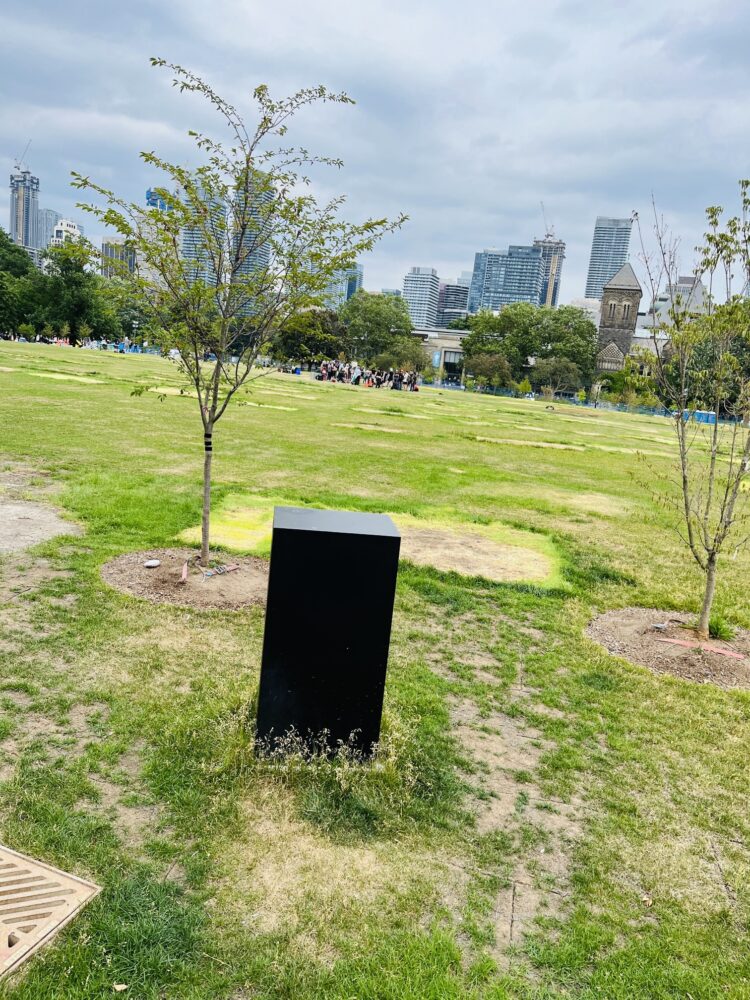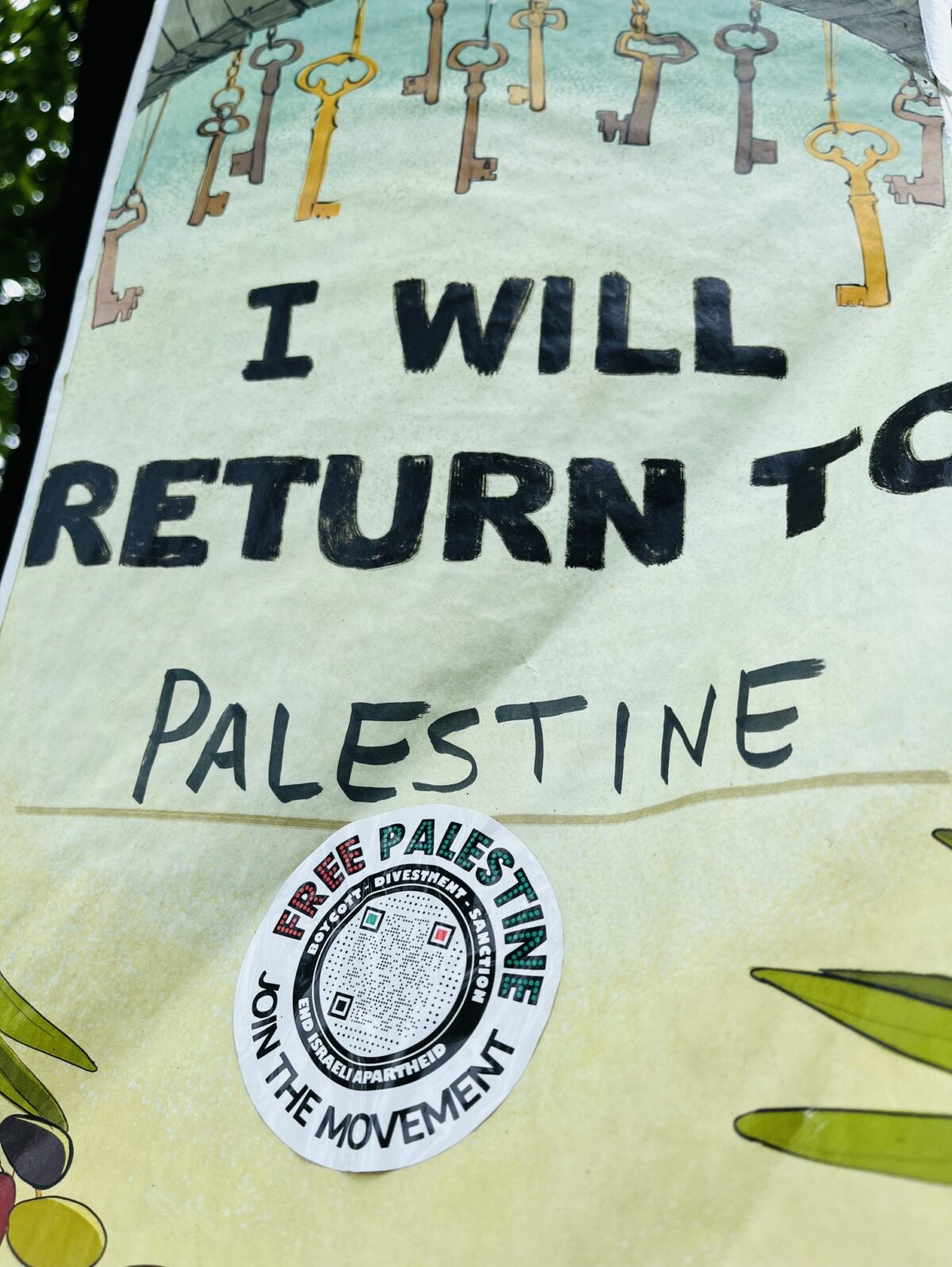Two months after having planted an unauthorized and illegal encampment in the heart of the University of Toronto, Palestinian students and their coterie of supporters reluctantly dismantled it on a cloudy day on July 3 drenched by high humidity.
I arrived at King’s College Circle nearly three hours before the encampment there was legally due to be taken down. By then, it was a shadow of its former self. Protesters had already packed up their tents, belongings and Palestinian flags. And most of the pro-Hamas signs on the chain link fence surrounding the encampment had been removed.
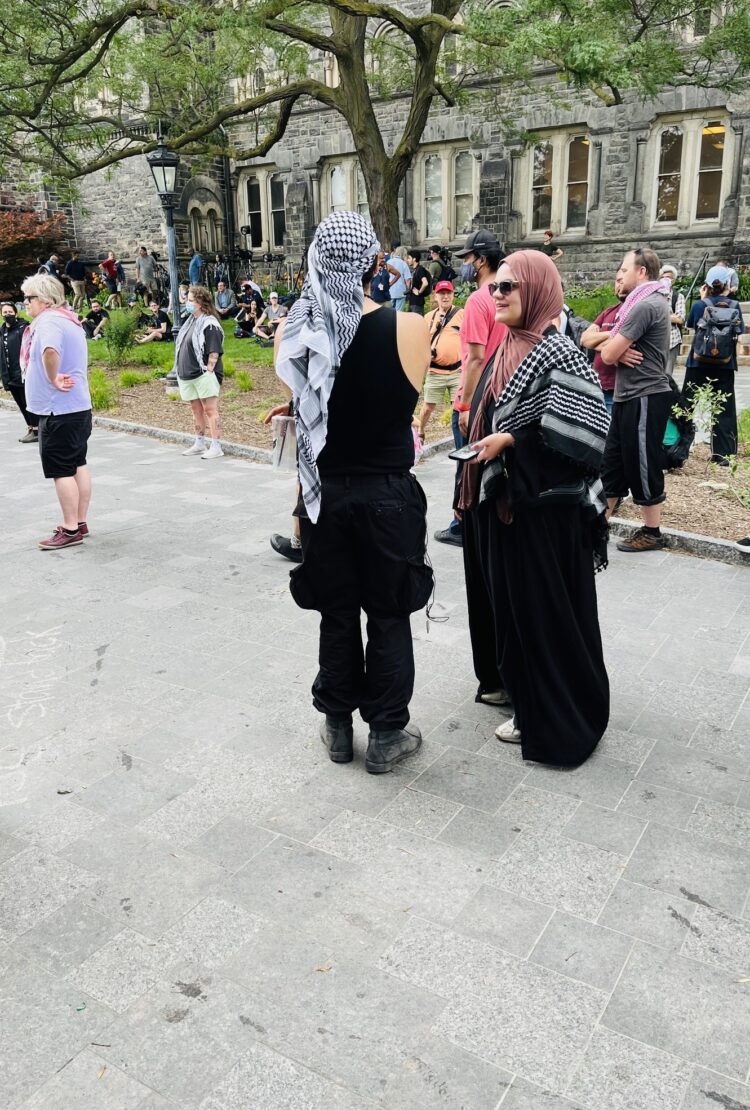
At an impromptu rally around the corner, a young man in tight pants, his face wrapped in a black-and-white Arabic headscarf, shouted rhythmically, “You will see, you will see, Palestine will be free.”
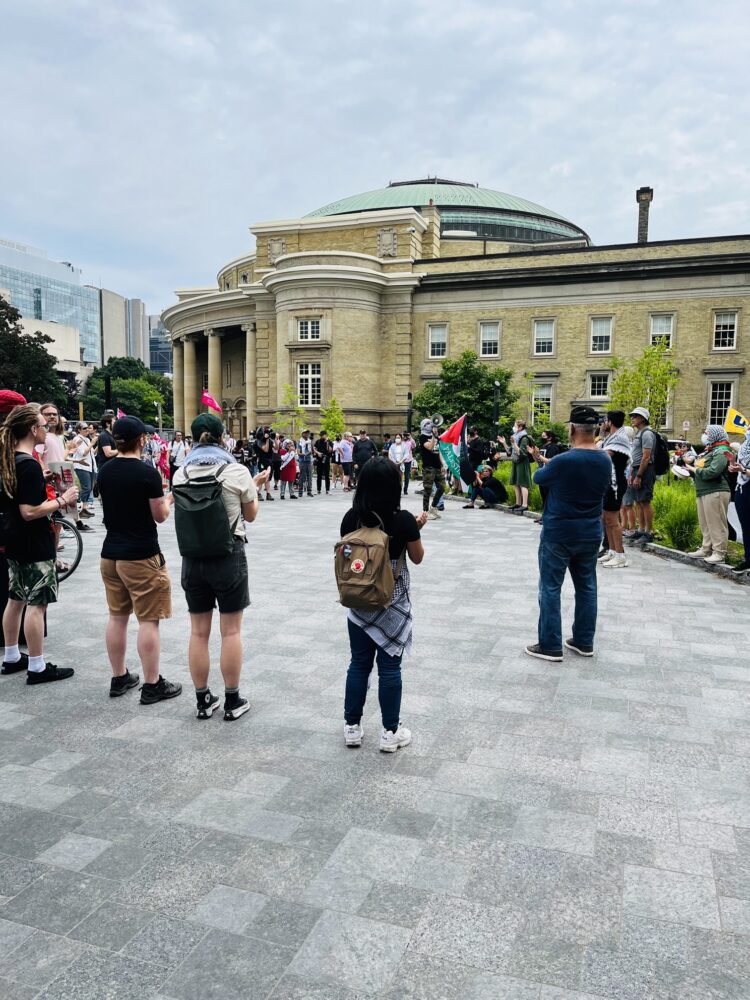
Voices in the crowd chanted, “From the river to the sea, Palestine will be free,” a slogan categorically rejecting a two-state solution and calling for Israel’s destruction and the creation of a Palestinian state encompassing Israel, the West Bank and the Gaza Strip.
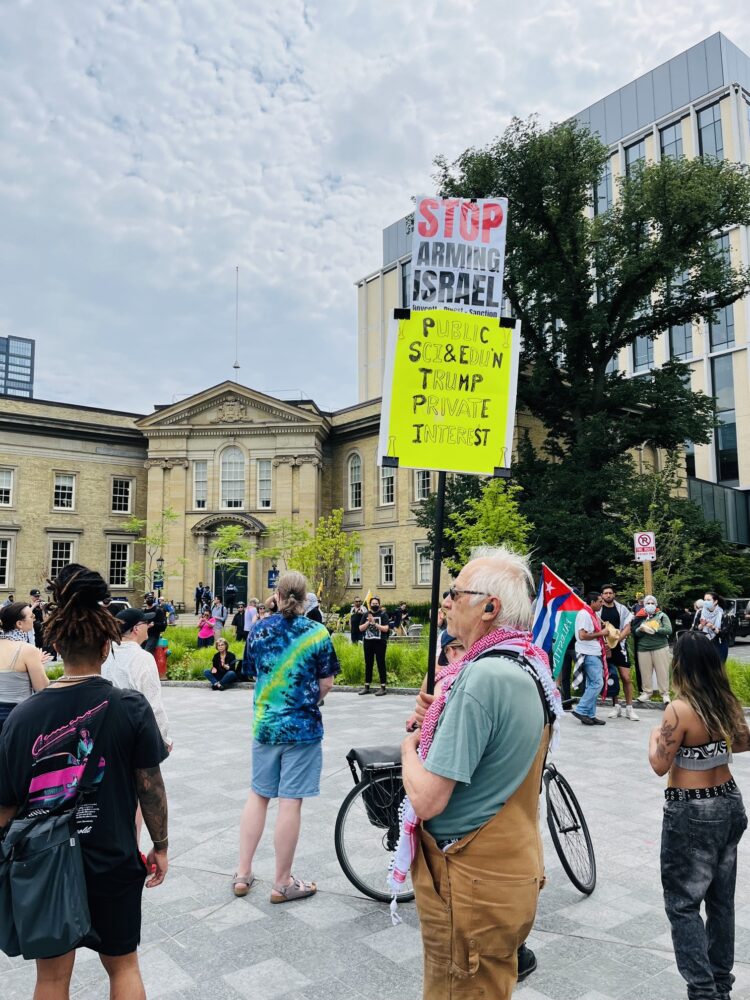
The protesters’ adoption of the one-state formula placed them on the same side as Hamas, Islamic Jihad, Iran and Hezbollah, the most extreme and destabilizing elements in the Middle East. It also categorized them as admirers of two radical Palestinian figures, Haj Amin al-Husseini, the Mufti of Jerusalem during the early years of the British Mandate in Palestine and an ally of Nazi Germany, and Ahmed Shukairy, the first and fiery leader of the Palestine Liberation Organization.
The demonstrators set up the encampment on May 2 as part of a massive wave of pro-Palestinian demonstrations on university campuses in Canada and the United States in the wake of the still ongoing Israel-Hamas war in Gaza. Their grassy encampment was, for all intents and purposes, an exclusion design designed to keep out people who disagreed with their hardline views.
They fervently believe that Palestinian refugees should be allowed to return to their former homes and properties in what is now Israel. To Israel and its allies, this would be a dire demographic time bomb intended to destroy the Jewish state by devious and incremental means.
They also contend that Israel has committed genocide during its military campaign in Gaza. Responding to Hamas’ murderous rampage on October 7, which claimed the lives of roughly 1,200 Israelis and foreign nationals, Israel targeted Hamas fighters who had deliberately embedded themselves in civilian structures such as schools, mosques and hospitals.
Certain that they held the moral high ground, the protesters insisted they would not leave the encampment until the U of T, Canada’s largest university, divested from investments in companies linked to Israel and severed academic ties with Israeli universities.
Much to its credit, the university rejected their extortionist demands, though it engaged them in futile discussions.
Fed up with their arrogance and obstinancy, U of T president Meric Gertler requested an injunction from the Ontario Supreme Court of Justice to clear the encampment on school property. Protesters speciously claimed that it would infringe on their right of free expression and undermine the principle that universities are forums for protest and debate.

Justice Markus Koehnen begged to differ, ordering the protesters to vacate the encampment by 6 p.m. on July 2. He ruled that the university, the proprietor of the property, “gets to decide” what happens on it.
The injunction permits demonstrations on campus, but forbids protesters from camping, building structures, blocking entrances and protesting on campus from 11 p.m. to 7 a.m. “As a result, the injunction does not limit the freedom of expression that the law provides,” he wrote.
Gertler, in a statement, said that the court order “prevents any group from asserting control of a shared space … in order to promote a particular view and deprive others of the freedom to express opposing viewpoints.” He added that the university “welcomes vigorous debate and protest.”
Pro-Israel students and advocates argued that the encampment created a divisive and hostile environment, but the judge concluded that it was generally peaceful and noted that the university had not presented a convincing case that it encouraged violence and engendered antisemitism.
With the July 2 deadline just hours away, Mohammad Yassin, an encampment organizer, said the protesters left to avoid police violence. The Toronto Police Service had announced it would enforce the injunction.
“We refuse to give the Toronto Police Service any opportunity to brutalize us,” said Yassin. “We are leaving on our own terms to protect our community from the violence the University of Toronto is clearly eager to unleash upon us.”
Sara Rasikh, a U of T graduate student and one of the protesters, sounded an equally defiant note.
“We are just getting started. This encampment is one of many tactics. The status quo of impunity can no longer stand. We demand action, not lip service. And as we’ve said from the very beginning, we demand commitments, not committees.”
She claimed that U of T investments in Israel serve Israel at the expense of Palestinians. “As a student at this university, I refuse to stand idly by as I watch my tuition money be invested into bombs and murder,” she said. “Make no mistake, we are not leaving this fight. We are evolving. Our campaign continues stronger. We have built relations at this encampment with people across social movements. These are the relations that will help us achieve our demands. Our achievements are undeniable. We forced the U of T to come to the table and negotiate around Palestine for the first time in its history.”
She has a point.
The protesters have plainly succeeded in publicizing the Palestinian case not only in Toronto, but in the rest of Canada as well.
Yet they clearly violated private property laws by building an encampment on the grounds of the university. And they created an intimidating ambience that made some Jewish students feel unsafe.
But in the end, they managed to promote a political cause that is rapidly finding acceptance in North America.
